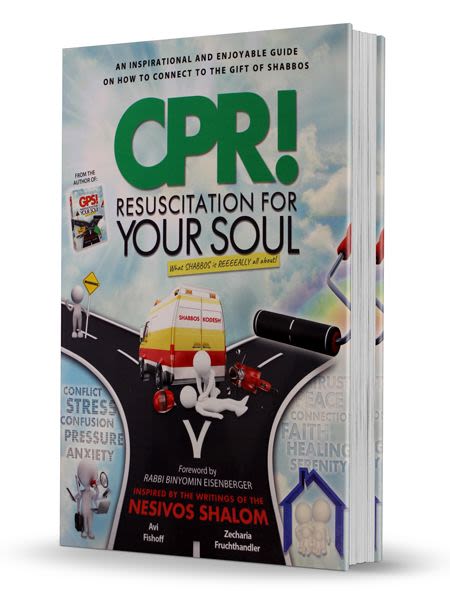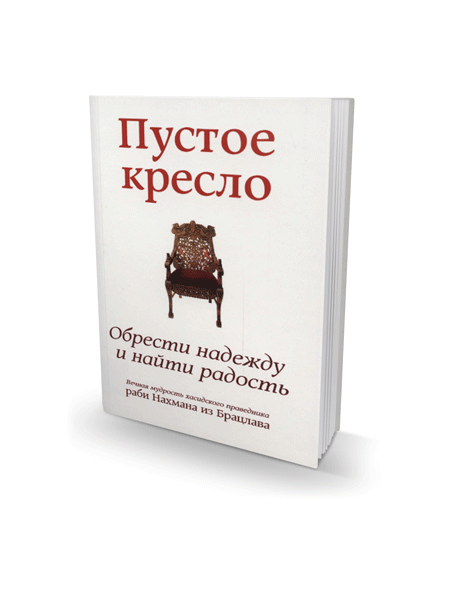
Nasso: Harnessing the Power of Negative Emotions
"Your midsection distended" (Bamidbar 5:22). From the above passage, we learn Hashem's policy of measure-for-measure...

"Your midsection distended" (Bamidbar 5:22).
From the above passage, we learn Hashem's policy of measure-for-measure: A faithful wife's midsection is intended to expand while taking part in the wonderful mitzvah of bearing children. Alternately, if a woman is unfaithful, her midsection also swells and distends, but leads to her imminent death.
Our passage at hand conveys an additional eye-opening moral: The same exact limb or action can be used either way – to perform a mitzvah or to commit a sin. Hashem gives us the option to utilize not only every part of our bodies, but each of our possessions, as we see fit; this is the foundation of free choice. Without free choice, the framework of reward and punishment makes no sense.
Rebbe Nachman of Breslev elaborates on the principle of using one's powers for the good. In Likutei Moharan II:23, he writes, "Sometimes when people dance and rejoice, they grab a person from the outside – that he's sad and depressed – and they force him into the circle of dancers, and force him to rejoice with them."
Rebbe Nachman continues to explain two important ploys in overcoming sadness or depression (neither of which includes pills or doctors): On a basic level, a sad person can chase away sadness by resorting immediately to doing something that makes him or her happy. For example, if a person feels melancholy, he or she should run to their stereo or disc-man and play their favorite music! Sadness and bitterness run away at the first sign of happiness, says Rebbe Nachman.
On a higher level, a person can seize the power of sadness and depression, and bring it directly into the joy; as such, the power of the negative emotion becomes a positive emotion in itself. Rather than chasing the sadness away, says Rebbe Nachman, we should run after it and harness its power for the good.
Maybe at this point you're asking, "How can this be? How can one chase a negative emotion and harness its power for the good?"
With Hashem's ever-loving guidance, the following parable will answer your question:
Stanislav was a strapping Polish dairy farmer whose shoulders were almost as wide as the road between Lodz and Lublin. He wasn't overly bright, but he was joyful all the time. When he wasn't milking his cows or churning butter, he wouldd guzzle a glass of his homemade vodka or raisin wine, take his fiddle off the shelf, and play a polka.
Stanislav's cows gave more milk than anybody else's; even more, their milk made the best butter. Everyone joked that the cows were always happy, because their master was never angry, but always singing and dancing. "Let them make fun of me," Stanislav would tell himself, "they're all suffering and I'm not. They're always bitter, but I walk around with the taste of butter in my mouth. Better butter than bitter, ha, ha," he'd laugh, amused at his own good humor and thankful of his own good fortune.
One bitterly cold Polish evening, Stanislav lit his kerosene lamp and went out to the cowshed to milk the cows. He sat down on his milking stool, took his pail, and began milking the first of the cows. Suddenly, a tremendous rat darted across the floor, right between the cow's front legs. Startled, the otherwise tacit Holstein kicked the milk pail, which in turn knocked over the kerosene lamp. Before Stanislav could react, the entire barn caught fire. Quickly, he assessed the situation: "I can build a new barn," he consoled himself. "First, I must save my cows!"
Once all seven cows were led to safety, Stanislav could breathe easier. "Brrrrrr, it's cold tonight!" he shivered, having distanced himself from the fire. "Why should I be cold?" he asked himself. The cowshed was a total loss anyway; Stanislav saw no reason why he shouldn't warm himself by the burning embers of the charred clapboards that were once the south wall of the cowshed.
Smelling the smoke in the air and seeing the glow of the blaze in the January sky, Stanislav's neighbors raced in the direction of his homestead. How amazed they were to find the brawny dairy farmer with a bottle of vodka in hand, dancing a polka and warming himself by the smoky aftermath of what was once his barn and cowshed.
Sadness and depression are like a fire within our midst. But, like Stanislav, we can take advantage of the fire's energy.
Try this ploy: If you feel like crying because you're sad, start talking to Hashem instead. Think if you've done anything wrong lately, and if so, repent. Use the tears for repent and remorse. If you prefer, start saying Tehillim from the bottom of your heart and let the tears participate. If it's late at night or in the wee hours of the morning, we can use our sadness to say Tikkun Chatzot (the midnight prayer) and help mourn the lengthy Diaspora, both of our people and of the Divine Presence within our midst.
Sadness and depression are dark-side emotions, stemming from the Yetzer Hora, the evil inclination. On the other hand, tshuva, tefilla, and Tikkun Chatzot are purest holiness. By dragging sadness into tshuva, tefilla, or Tikkun Chatzot, a person converts a powerful negative emotion into happiness, since the direct result of immersing oneself in an act of holiness is happiness.
Just as sadness can become happiness and unholiness can become holiness, may Hashem turn all the harsh decrees against the people of Israel to blessings of salvation and redemption, amen.












Tell us what you think!
Thank you for your comment!
It will be published after approval by the Editor.